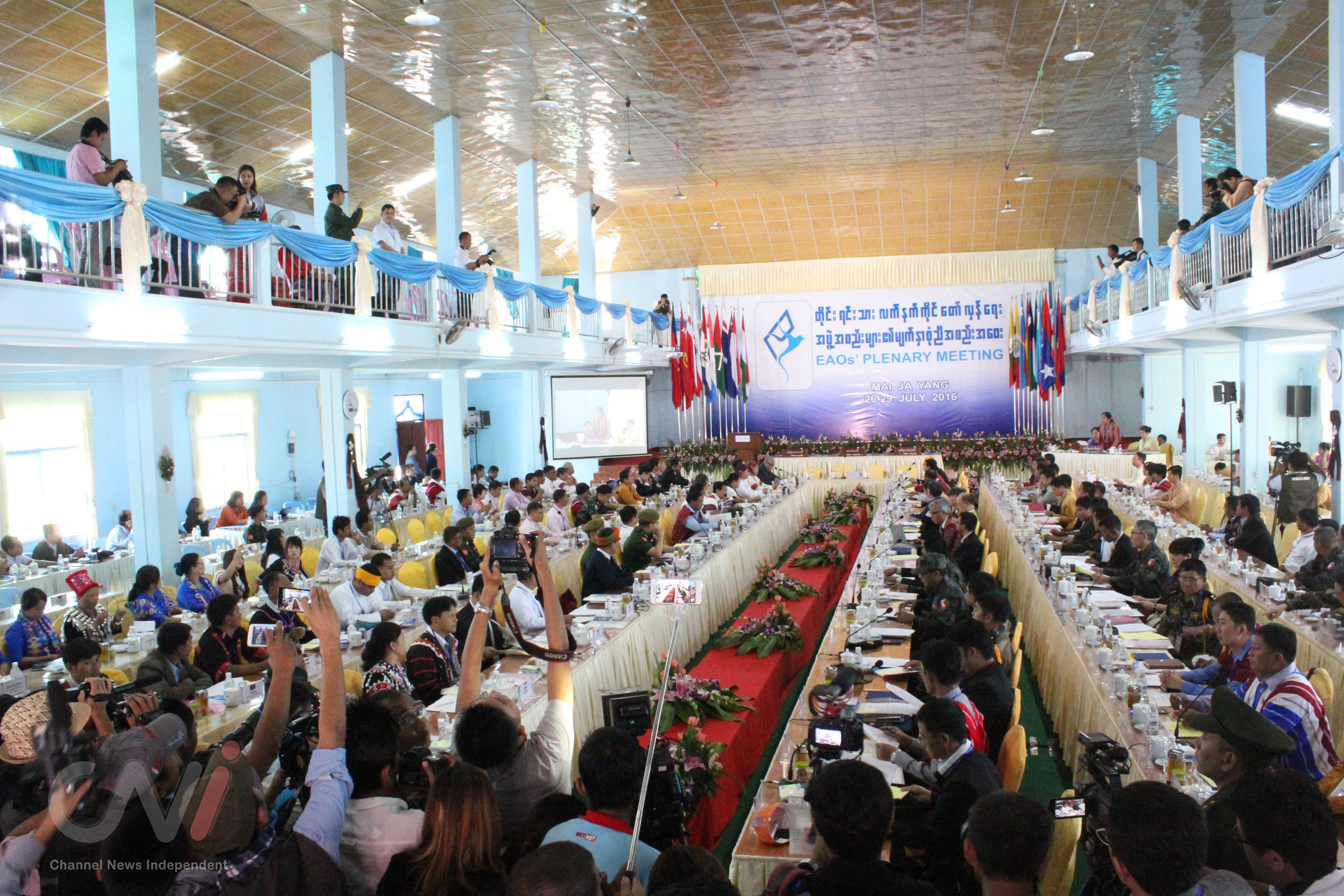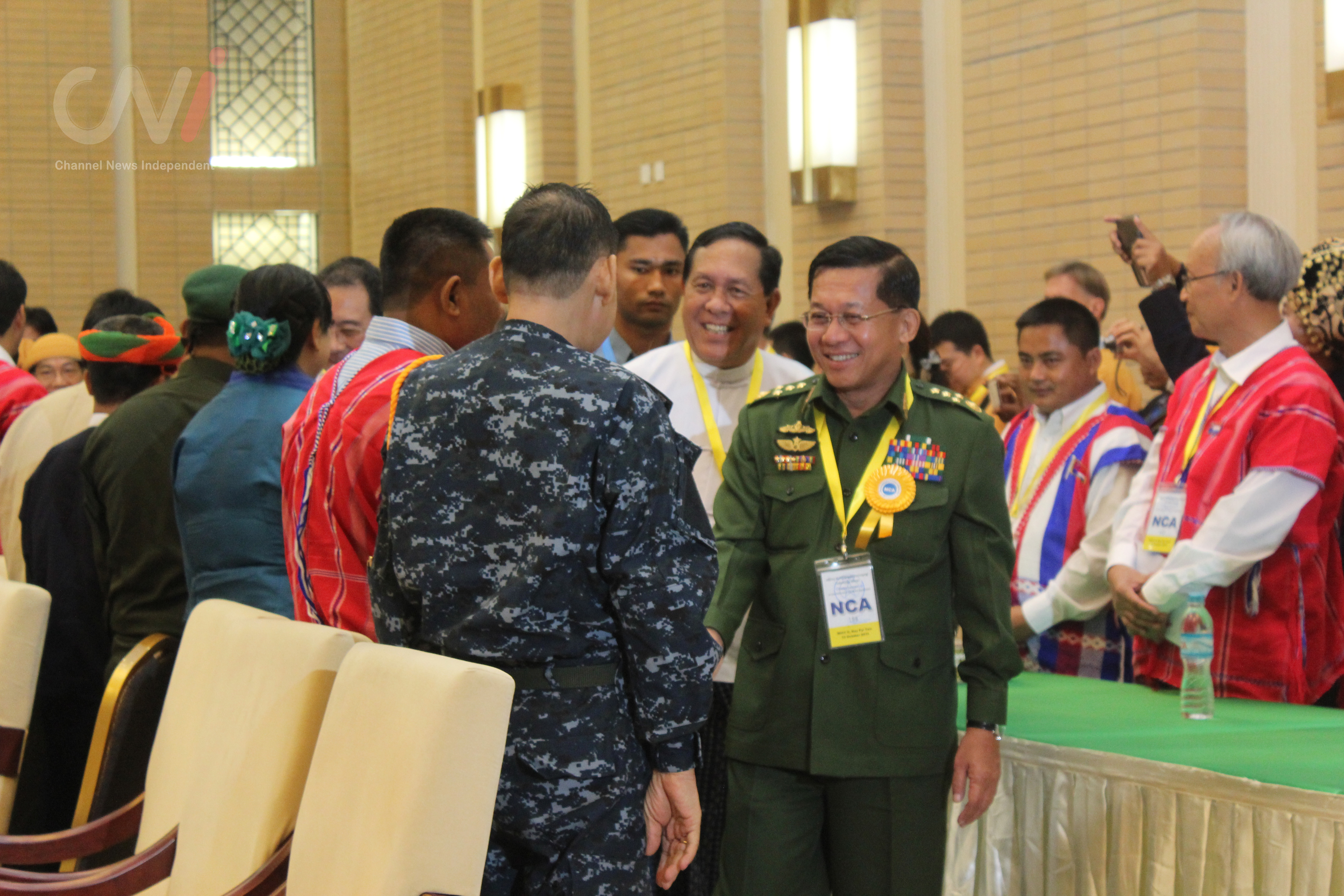CNI News
August 14, 2025
Military and political analysts point out that ethnic armed organizations (EAOs) should be given guarantees through constitutional amendments in order to persuade them.
They note that recent meetings of Spring Revolution armed groups at the Kachin Independence Army (KIA) headquarters in Laiza could intensify the military situation and also impact on holding elections.
Political analyst Dr. Myo Set Thway told CNI News that since EAOs have consistently demanded constitutional amendments, they must be persuaded through these amendments.
“We need to go down the path of exercising separation of powers. Those who deserve to take part in this division of power should be included. Even now, as much as possible, steps should be taken. But what the EAOs are demanding is constitutional amendment. According to the law, such amendments cannot be done outside of the Hluttaw. In the peace process, however, it’s not only about constitutional reform—issues like resource-sharing and power-sharing are also included. All of these must be addressed through constitutional amendment and negotiation. And to achieve that, once the Hluttaw is in place, the next government must put it into effect.” he said.

While ethnic armed groups were holding a conference
During July and August 2025, several Spring Revolution forces—including the Chin Brotherhood (CB), Karenni National Defense Force (KNDF), Yaw Army, Myingyan PDF, NUG ministers, and Naga armed groups—met with the KIA leadership in Laiza.
Three months after Myanmar gained its independence on January 4, 1948, a civil war broke out and has continued up to the present.
Sai Htay Aung, Chairman of the Tai Leng (Shanni) Nationalities Development Party, told CNI News that the disclosure of such meetings at the KIA headquarters—which should have been kept secret—raises questions about whether it was revealed for political purposes.

While seeing Senior General Min Aung Hlaing and ethnic armed groups
“Yes, as long as armed groups keep operating, Myanmar will never achieve peace. When such news about meetings at KIA headquarters comes out, although it should have remained secret, we must consider whether it was revealed for use somewhere else—as a political card. Likely after the elections, under the new government. And that new government needs to be firm in principle but flexible in approach. In Myanmar, only when armed conflicts end can ordinary people live in peace and pursue livelihoods. At that point, if parliament makes decisions to gradually reduce and eliminate armed groups, that would be a way toward peace. It would mean using a mix of approaches—political, legal, and military—to persuade the armed groups to stand down. That, I believe, is the path forward," he said.
Currently, EAOs and Spring Revolution forces are demanding: the removal of military dictatorship; abolition or amendment of the 2008 Constitution; establishment of a federal union; strengthening of democracy; resource-sharing and power-sharing in governance.
Some EAOs are even demanding a confederation status, separate independent territories, self-determination, and self-administration, and are waging war against the Myanmar Tatmadaw to achieve what they want.
While EAOs continue to fight for greater autonomy, Commander-in-Chief Senior General Min Aung Hlaing has urged them to present their demands through the Hluttaw rather than on the battlefield.




